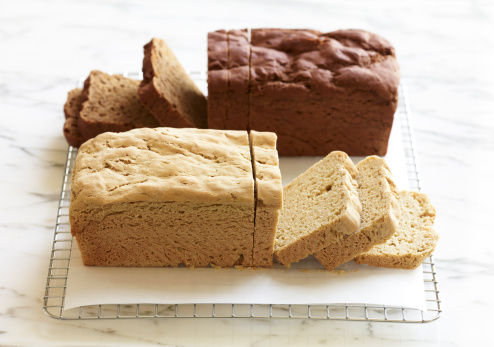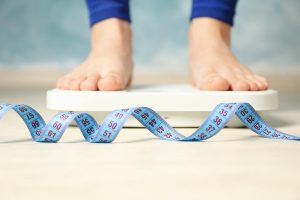Going gluten-free is just one of the many hot diets out there right now. I hear a lot of talk about eliminating gluten as a means of losing weight. It’s true — if you stop eating foods that contain gluten you are getting rid of a lot of high-fat and highly-processed foods so you will likely lose a few pounds, at the very least. But that’s not the whole story. When people who do give up gluten gain weight, they proclaim that the ‘diet’ didn’t work and likely go back to eating how they were previously. The problem lies in the amount of foods available to us that, while gluten-free, are just like their gluten-laden cousins, and contain just as much if not more fat and calories. If you stop eating cookies because they are made with gluten flour, but substitute them with any of the numerous yummy gluten-free options out there, you are just trading one problem for another. I would know, I’ve been there. Some of those gluten-free cookies and muffins are pretty tasty.
Just because you go gluten-free does not mean you are going fat-free. One really has nothing to do with the other. Gluten is a protein found in grains, especially wheat, that is responsible for the elastic texture of dough. Gluten acts as a ‘glue’ of sorts that helps food maintain shape. Gluten is found not only in food but also in inedible products, so it’s prudent to read labels if you really want to be 100% gluten-free.
And those that decide to eliminate it should make sure that they test to see if they have sensitivity to gluten or if they have Celiac disease, a serious autoimmune condition where damage to the small intestine is triggered by ingesting gluten. When someone with Celiac consumes gluten, the immune response attacks the small intestine and prevents nutrients from being properly absorbed into the body. Celiac is hereditary so there would be some family history, not only of Celiac (which often went misdiagnosed until recently) but other autoimmune diseases. In many, Celiac was a pre-cursor to more serious conditions, but before proper diagnosis, it went untreated. There are a multitude of symptoms so self-diagnosis is discouraged. If you feel you may have Celiac disease, consult your doctor who will do a specific blood panel to determine if you do and treat you accordingly.
If you are thinking of taking gluten out of your diet, do it for the sensitivity test reasons or simply because you want to reduce eating or using a lot of overly-processed foods and products. But in terms of weight loss, exercise and a healthy and balanced diet are still best. There are easier and less-confusing ways to go about slimming down.
Jessica Kuiken is a Los Angeles-based Pilates Instructor and Personal Trainer. You can follow her on Twitter for the latest on fitness and healthy living.

















-300x225.jpg)
